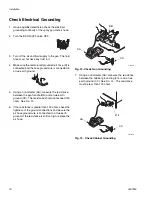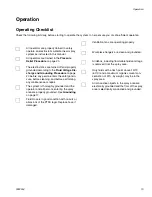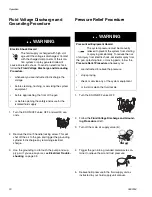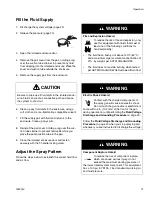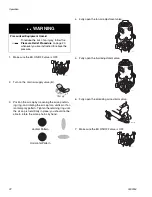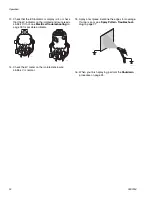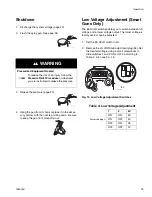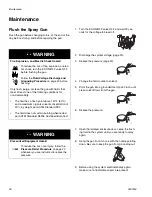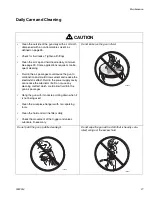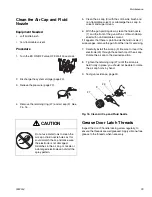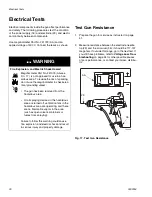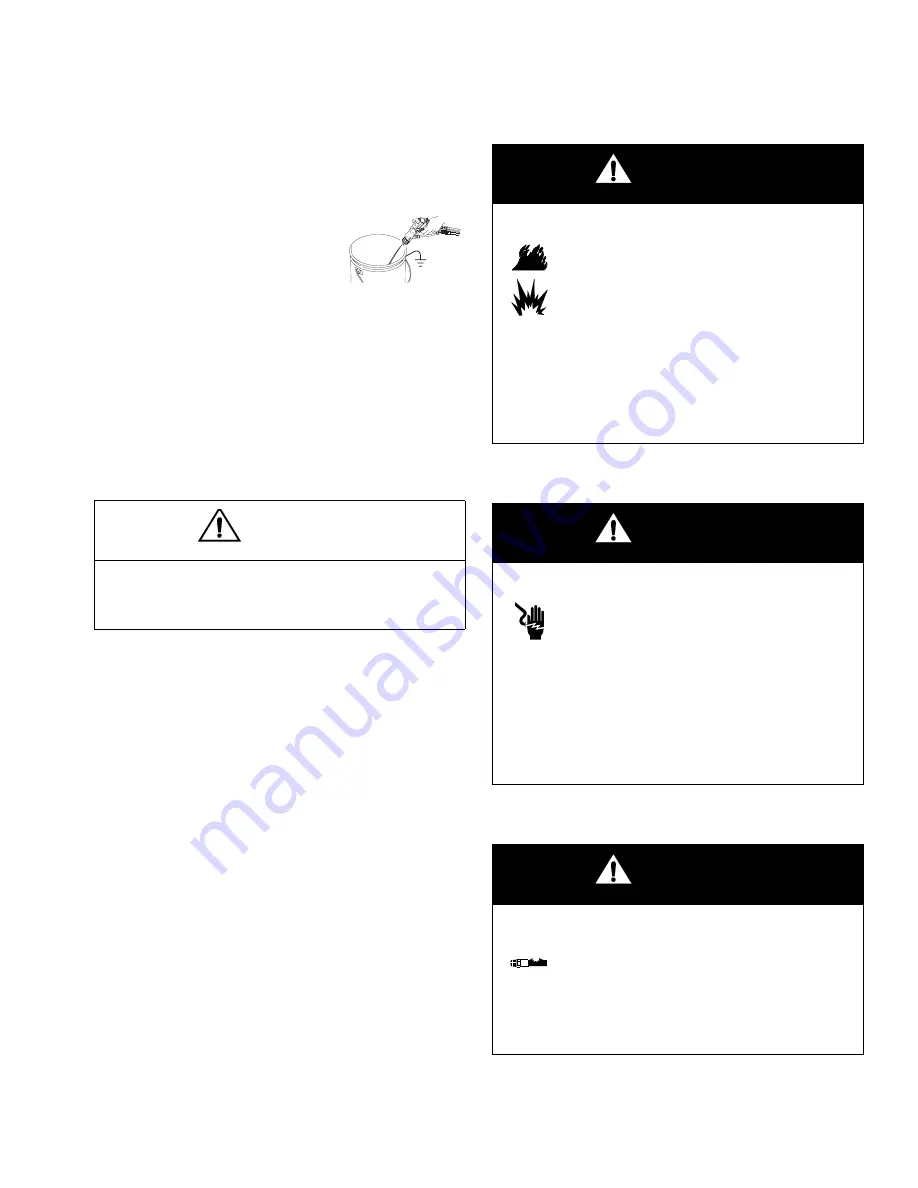
Operation
309293J
21
Fill the Fluid Supply
1.
Discharge the system voltage (page 20).
2.
Relieve the pressure (page 20).
3.
Open the isolated enclosure door.
4.
Remove the pail cover from the pail, holding a rag
over the suction tube strainer to prevent any fluid
from dripping into the isolated enclosure. Place the
cover and suction tube outside the enclosure.
5.
Remove the supply pail from the enclosure.
6.
Clean up any fluid spills in the enclosure, using a
soft cloth and a non-flammable, compatible solvent.
7.
Fill the supply pail with fluid and return it to the
enclosure. Clean up any spills.
8.
Reinstall the pail cover, holding a rag over the suc-
tion tube strainer to prevent fluid spills while you
place the pump suction tube in the pail.
9.
Close the isolated enclosure door and fasten
securely with the T-handle locking screw.
Adjust the Spray Pattern
Follow the steps below to establish the correct fluid flow
and air flow.
CAUTION
Be sure to wipe up all fluid spills in the isolated enclo-
sure. Fluid can create a conductive path and cause
the system to short out.
ti1276a
WARNING
Fire and Explosion Hazard
To reduce the risk of fire and explosion, only
use this equipment with fluids that meet at
least one of the following conditions for
non-flammability:.
•
The fluid has a flash point above 140
°
F (60
°
C)
and a maximum organic solvent concentration of
20%, by weight, per ASTM Standard D93.
•
The fluid does not sustain burning when tested
per ASTM Standard D4206 Sustained Burn Test.
WARNING
Electric Shock Hazard
Contact with the charged components of
the spray gun will cause an electric shock.
Do not touch the gun nozzle or electrode or
come within 4 in. (102 mm) of the front of the gun
during operation or until performing the Fluid Voltage
Discharge and Grounding Procedure on page 20.
Follow the Fluid Voltage Discharge and Grounding
Procedure on page 20 when you stop spraying and
whenever you are instructed to discharge the voltage.
WARNING
Component Rupture Hazard
To reduce the risk of component rupture,
which can cause serious injury, do not
exceed the maximum working pressure of
the lowest rated system component. This equipment
has a 100 psi (0.7 MPa, 7 bar) maximum working air
and fluid pressure.












